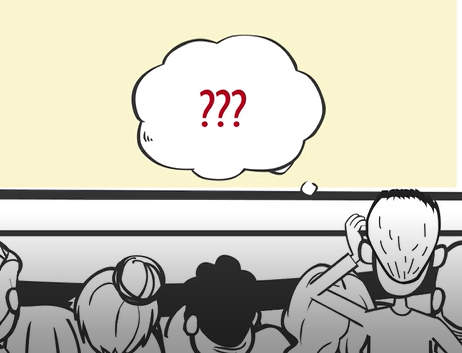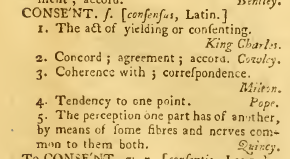Clarify Peoples' Vote Count

This page changed with the April 04, 2024 edit.
To move all ads to bottom of screen, shrink the window width
Be part of the success!
Help spread the word!

This page changed with the April 04, 2024 edit.
This clarifies how The Declaration established a vote-counting system that protects peoples right to not vote; their right to not have their time wasted at the polling station when there is only junk on the ballot; as well as protecting their right to not vote for even the lesser of evils.
With the phrase, "Consent of the governed", from The Declaration, and by 1756 definition for Consent, it is literally impossible for a registered voter to not vote.

CONSENT
1. The act of yielding or consenting.
2. Concord; agreement; accord.
3. Coherence with; correspondence.
4. Tendency to one point.

To CONSENT
1. To be of the same mind; to agree.
2. To co–operate to the same end.
Some people incorrectly claim that because of CONSENT definition #1 inclusion of "yielding" that a person registered as a voter, who does not submit a ballot in any way, shape, or form has somehow yielded to the will of those who did.
This is not entirely true. We must account for the exact words in The Declaration, consent of the governed; and the word yield holds no weight.
With this, we also define, yield & abstain.
To Yield:
v.a. 7. To resign; to give up.
v.n. 1. To give up the conquest; to submit.
To Abstain:
To forbear, to deny one's self any gratification.
The yield definition covers those who choose to not participate in voting, right from the start, by not registering as a voter. They yield to the will or to the vote-count of the majority of the total number of registered voters.
When a registered voter decides to not participate, they abstain by denying themselves any gratification from consenting or withholding their consent. To abstain, they must physically have their name removed from the Voter Registration.
Yielding and abstaining are not the same action as consenting.
With the Consent of the Governed, as with the other two methods; we are dealing with a known number of voters, --Registered Voters. For clarity, these people are registered as voters, which means that every time a ballot goes out in their political jurisdiction, their vote must be properly accounted for, as either Consenting, or as Withholding their Consent.
The Consent of the Governed, contract-clause makes it the duty of the registered voter to get their consenting vote to the polling station before it closes; otherwise, that voter has not consented to anyone or anything on the ballot.
This system eliminates most of the corruption that finds its way into voting. Most importantly; it requires whomever or whatever is on the ballot to educate the registered voters. They must be good enough, in order to encourage more than 50% of the total body of registered voters to go to the polling station to grant their consent; or fail for lack of consent.
Because of the four words consent of the governed, it literally demands that in order for any balloted item or candidate to win; it must receive the consenting votes from the majority of that known total number registered voters —or fail for lack of consent. The not entirely true comes to play in that those registered voters who do not submit a ballot are submitting to the will of the majority of the total body of registered voters. However, if the majority of the total body of registered voters do not submit a ballot; everything and everyone on that ballot must fail for lack of consent.
The governed people, are intended to work together to properly control their government's powers to equally protect each other's rights.
Share any content within this website. Get others talking about —Getting & Keeping Clean Honest Government.
[End Page Content]
To move all ads to bottom of screen, shrink the window width
Help make it happen!
Help spread the word!